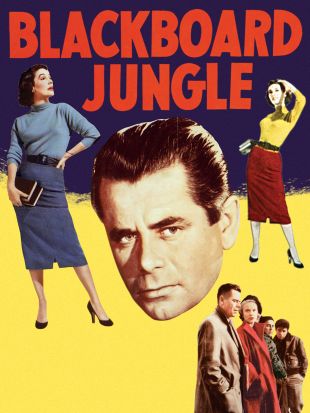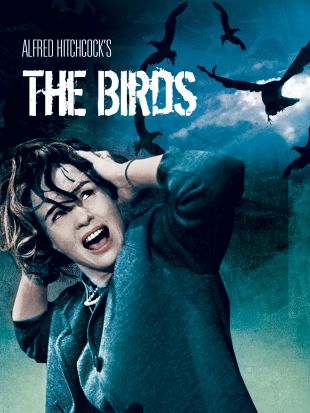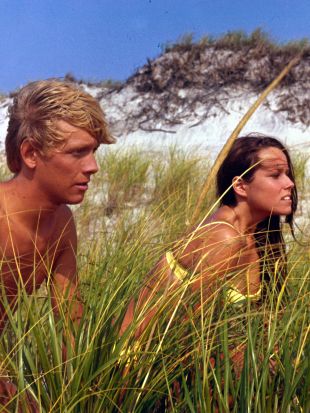Few writers of any era have had the impact on popular literature that Ed McBain, also known as Evan Hunter, did on the mystery genre -- and under both names (and others), he had a huge impact on motion pictures as well. Ironically enough, though readers of the books he published under each name were seldom aware of the body of work that existed under the other, neither one was his real name -- both Evan Hunter and Ed McBain were names he took for the sake of expediency. He was born Salvatore Lombino in New York City in 1926, the son of Charles Lombino, a postal worker, and the former Marie Coppola, a homemaker. He served in the United States Navy during World War II and, while in uniform, started writing, although he was a long way from making it pay and would be for many years to come. He attended Hunter College, graduated Phi Beta Kappa, and chose to enter the teaching profession in New York City. He had little luck in publishing his work over the next few years, however, and eventually reasoned that his ethnic name was a major impediment to getting his work a fair reading by publishers; decades later, he observed that, in 1952, Italian-Americans were not "supposed" to be literate, much less authors, in the eyes of many editors. As a result, Salvatore Lombino changed his name legally to Evan Hunter in 1952, and he sold his first book that year, an adventure novel about Vikings that passed with little notice.
It was in 1954 that he had his first substantial impact on the public with his novel The Blackboard Jungle, based on his experiences as a high school teacher in New York. The book was an extraordinary work in its time, blowing the lid off the unspoken truth about urban delinquency and the real state of public education, in the big cities at least. In 1954 the book was a shock to Americans accustomed to images out of Our Miss Brooks and Mr. Peepers on television. At the insistence of author-turned-director Richard Brooks, MGM grabbed up the screen rights to the book and turned it over to Brooks, who adapted the screenplay and directed the movie. The film turned the book into an even bigger success, and in tandem with Warner Bros.' production of Rebel Without a Cause, set the stage for a decade of juvenile delinquency dramas. Growing out of the success of The Blackboard Jungle, Hunter was given a contract to write a series of three crime novels, and he began to do research on the subject.
Hunter began working around precincts in New York, talking to cops and finding out how they worked, talked, and thought. Eventually he got so fascinated with the minutiae of police procedure that he started to become a nuisance to some of his contacts -- he also realized that not every police force operated exactly the same way and that he would be limiting himself to set his book specifically in New York City. Further, he wanted to present the police in a realistic way concerning their flaws -- he resented the squeaky-clean presentation accorded the LAPD's detectives by television series such as Dragnet almost as much as he did the absurdly clean vision of high schools that preceded The Blackboard Jungle. He wanted to show the police, as they sometimes do, pursuing the wrong leads and the wrong suspects, and even blind alleys on major cases. Additionally, he was aware of the fact that not every case was monumental in importance, either in the daily scheme of things or in a detective's career, and that no detective in those days caught major cases all of the time. Thus, he decided to avoid the pitfall of having a specific fictional detective as his hero -- instead, the focus of his book would be an entire detective squad at a fictional, generic precinct, designated the 87th Precinct, in a city named Isola, which resembled New York but also had elements that one might recognize from Boston or other major cities.
The first book of the crime series had at the center of its action Detective Steve Carella, who was married to a woman who happened to be deaf, but in subsequent books other members of the 87th squad, such as Meyer Meyer, who was Jewish; Arthur Brown, who was black; Ollie Weeks, who was too heavy for his own good and filled with rage; and Bert Kling, the younger, would-be Lothario of the squad, would be near the center of the action, while Carella would be on the sidelines. The author was also concerned that, having established himself as a serious writer under the name Evan Hunter, his police novels might tarnish his image as an author, and so, for his new venture, chose the name Ed McBain.
The first of the Ed McBain-credited books, Cop Hater, was published in 1956, and was an instant hit which revolutionized the mystery genre. The screen rights to the book were licensed quickly and in 1958 a reasonably faithful, and very exciting film of Cop Hater, starring Robert Loggia as Carella, was released. By 1961, NBC had scheduled a series called 87th Precinct, starring Robert Lansing as Carella and Gena Rowlands as his wife, Teddy, with Norman Fell as Meyer Meyer, which ran for one season. He added to the cast of characters as the books multiplied -- in 1960, he introduced The Deaf Man, a criminal mastermind who took on a special history with the 87th of being thwarted by them but always escaping, and often bringing out some of their most inept behavior in the course of their working the cases involving him; in the series, he was portrayed by Robert Vaughn in one episode.
Hunter/McBain wrote numerous other books, several of which were filmed. The most notable of them was A Matter of Conviction (1959), which was made into a movie in 1961 by John Frankenheimer, entitled The Young Savages. A powerful urban drama, the book was a searing look at brutality in the ghettos of New York City among the socially displaced teenagers of the era A Matter of Conviction was nearly as startling as The Blackboard Jungle, and it appeared just as New York and the country were reeling from harrowing instances of gang-related violence among teenagers.
By this time, Hunter was in heavy demand as a writer in several different fields, and it was soon after that he wrote what was generally considered to be his finest film script, for Alfred Hitchcock's The Birds, turning a Daphne du Maurier short story into a chilling two-hour screenplay. In 1963, Akira Kurosawa also turned his book King's Ransom into the movie High and Low. In 1966 MGM, screenwriter Dale Wasserman, and director Delbert Mann made an excellent thriller entitled Mister Buddwing, starring James Garner, out of Hunter's 1964 novel Buddwing, dealing with a man who awakens in New York's Central Park with no memory of who he is. Working as McBain, he also wrote several scripts for the police program Ironside in the 1960s, and for the police detective series Columbo in the '90s. In the early 1970s, Filmways got McBain himself to adapt his 87th Precinct fiction into the screenplay for the movie Fuzz.
Hunter/McBain sought to keep his two identities separate for most of his career, and wrote in distinctly different styles for each. Late in his career, however, he was willing to permit a collaboration between Evan Hunter and Ed McBain. Over the 49 years after the first book, Hunter wrote 54 additional 87th Precinct novels, the last of which was finished just before his death, from cancer of the larynx, in July of 2005.


